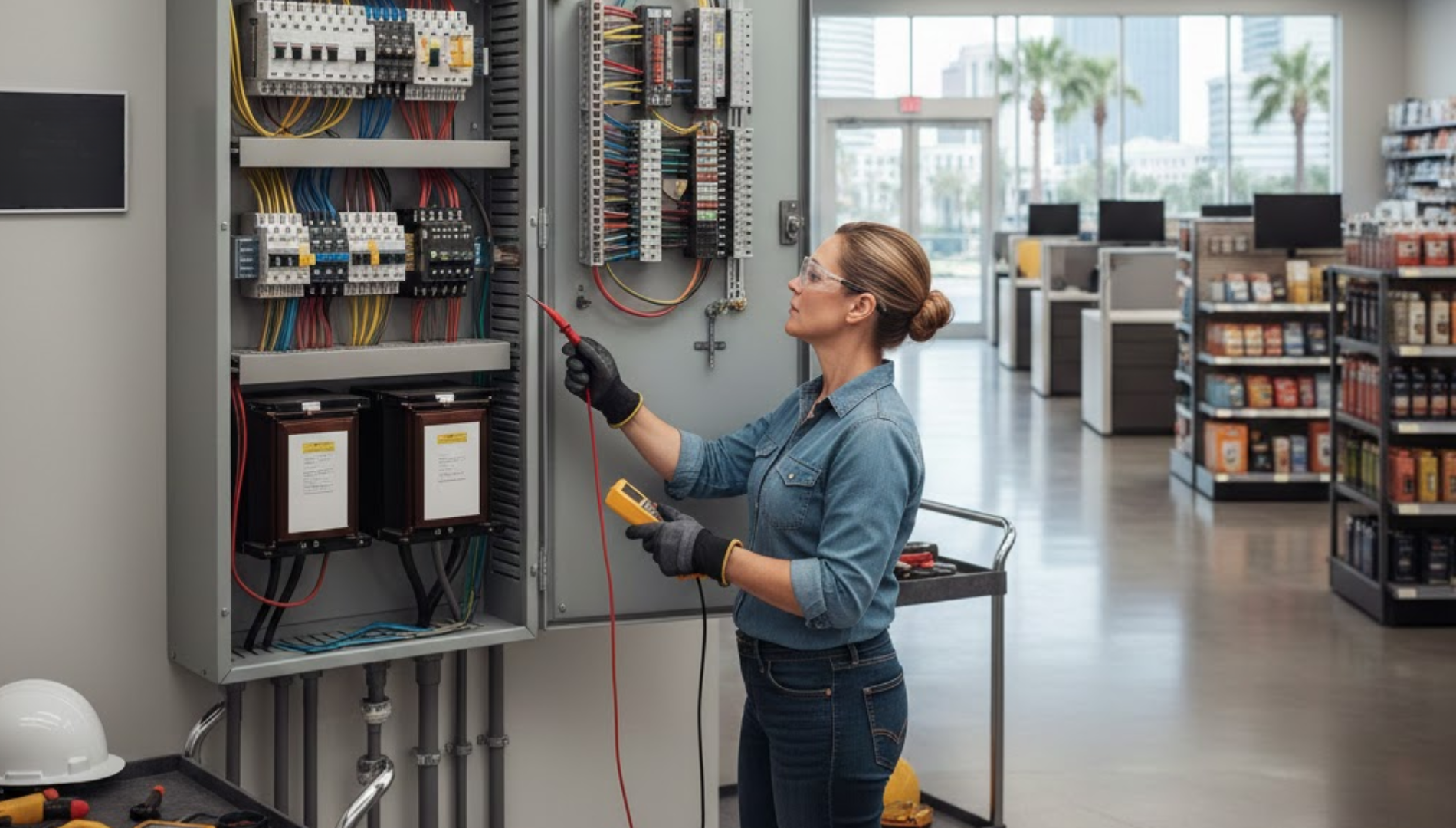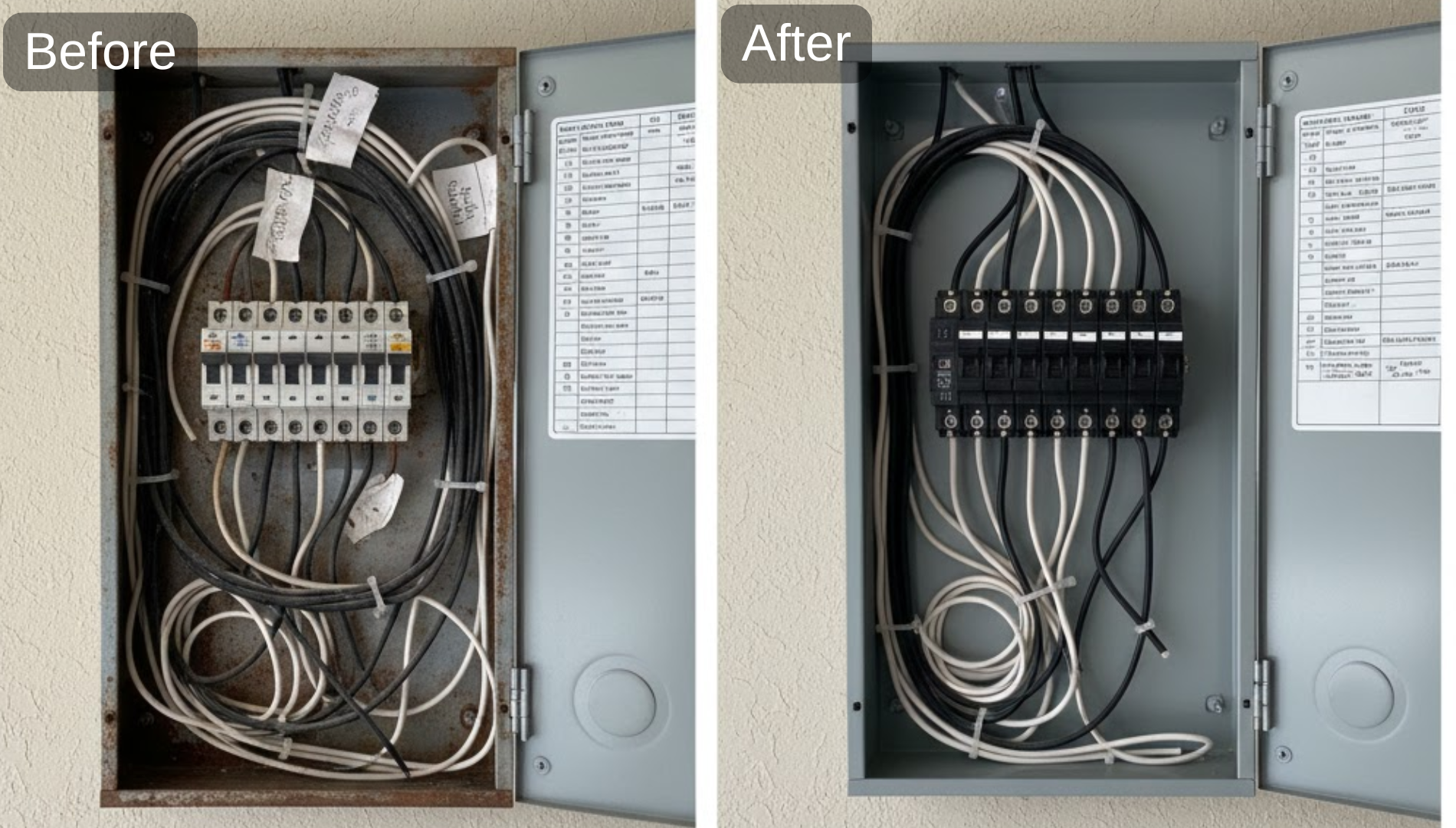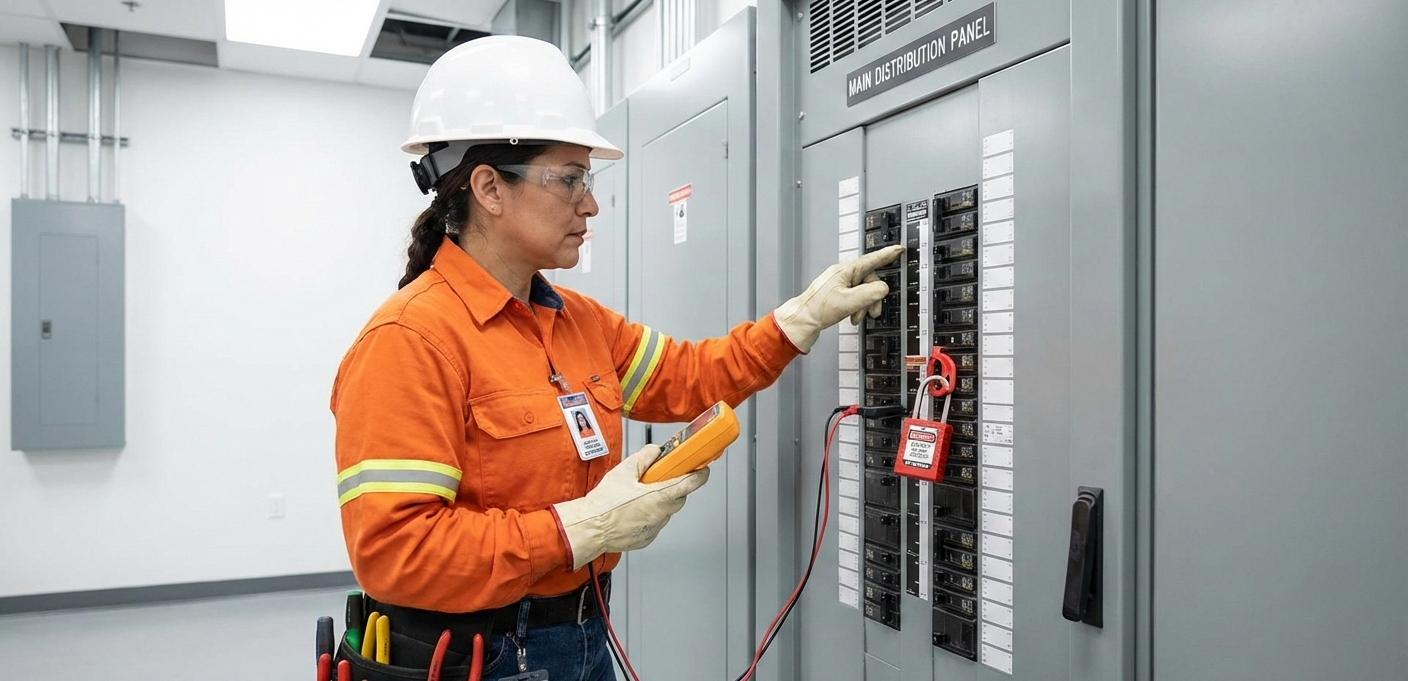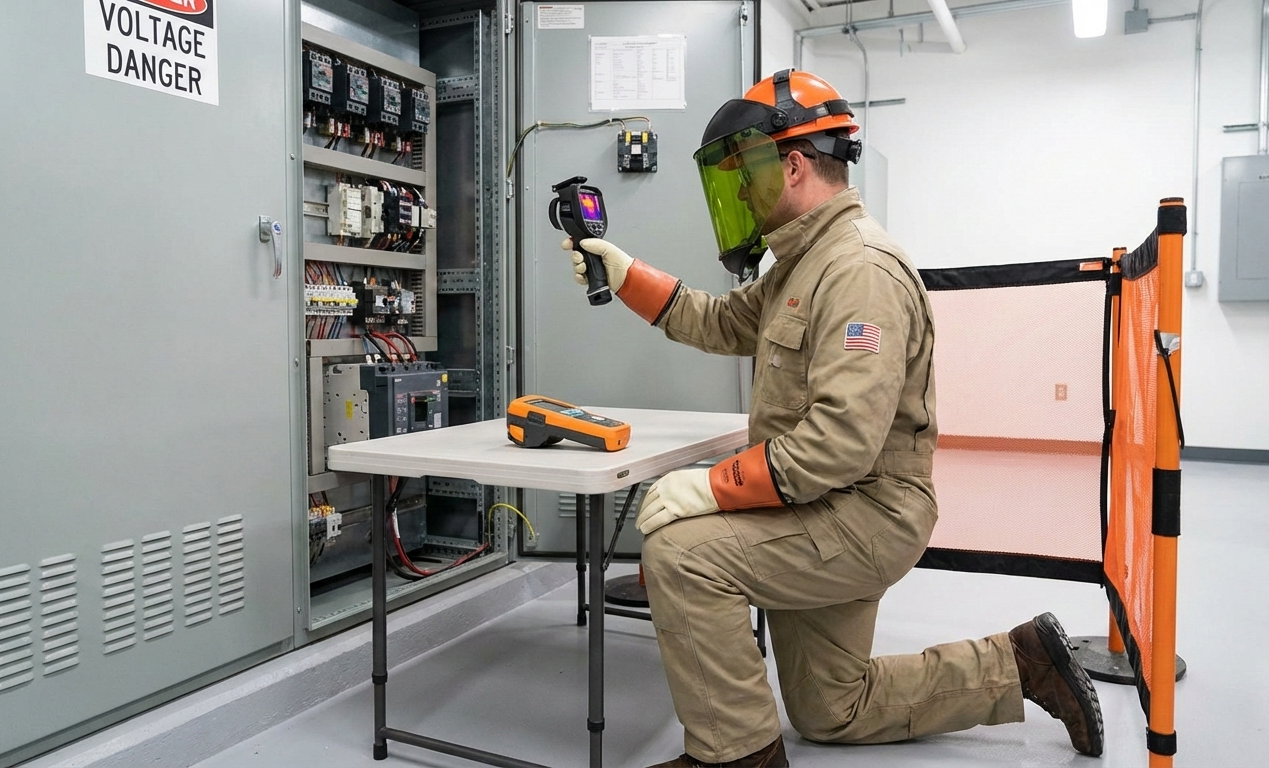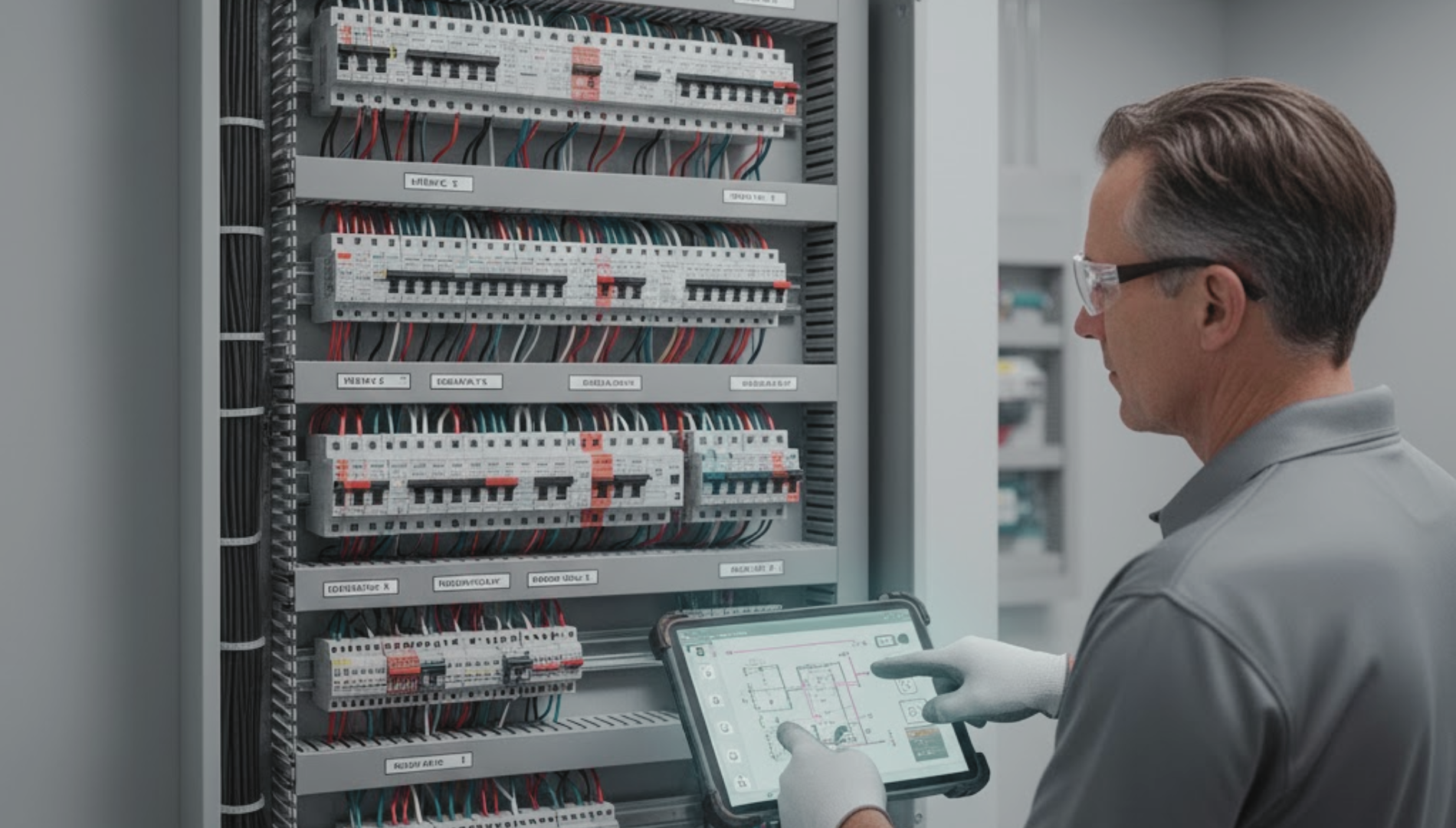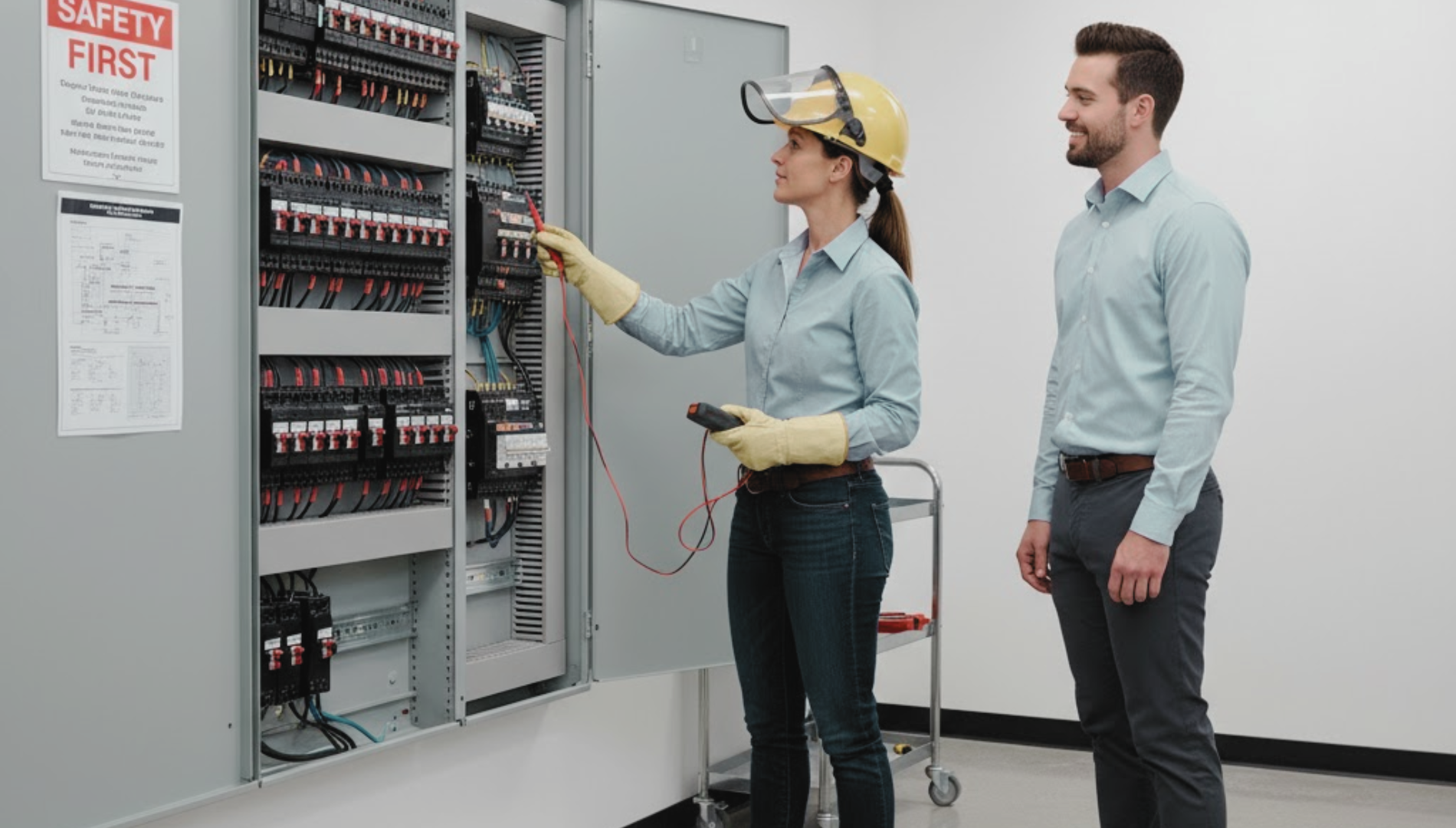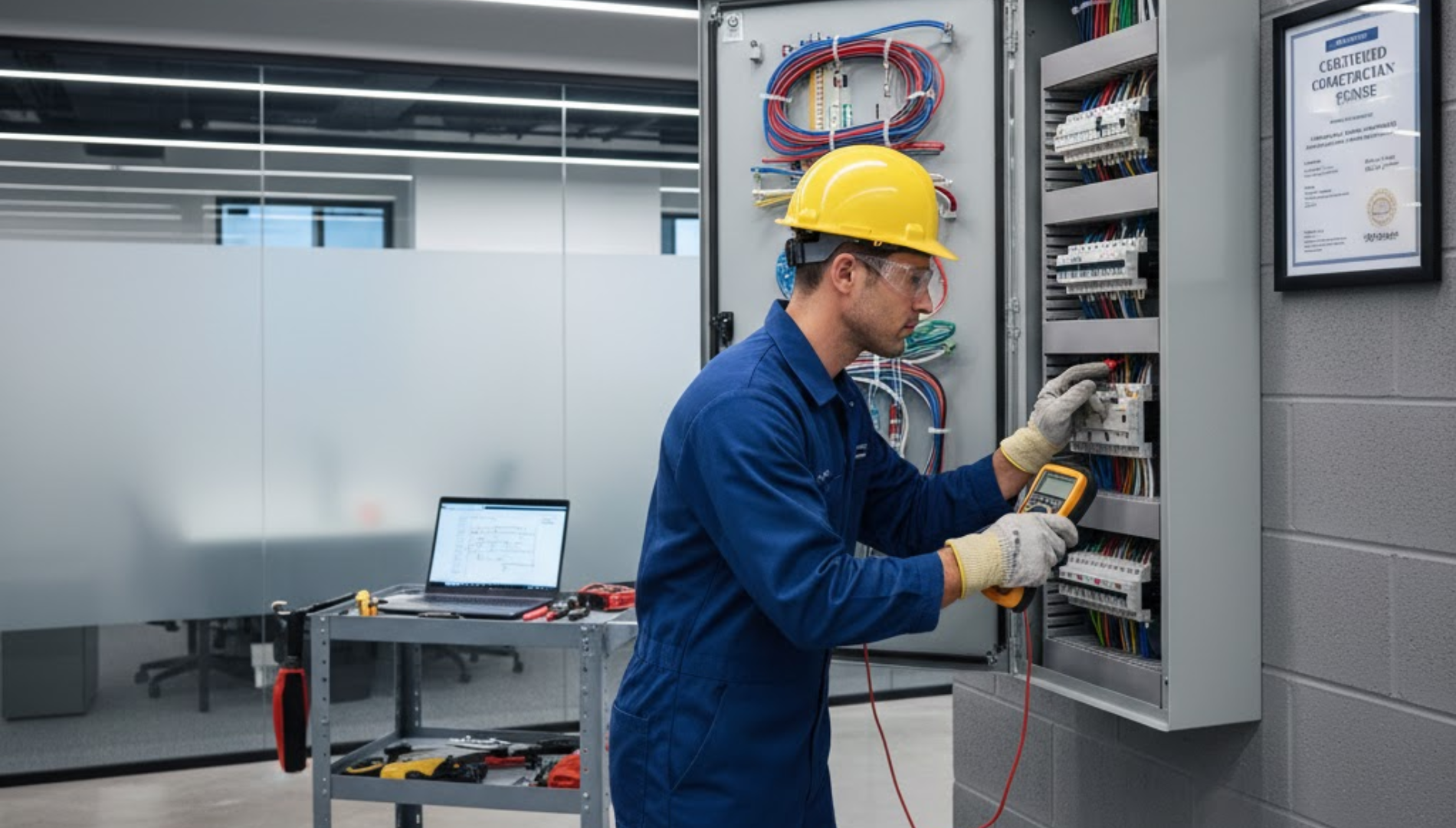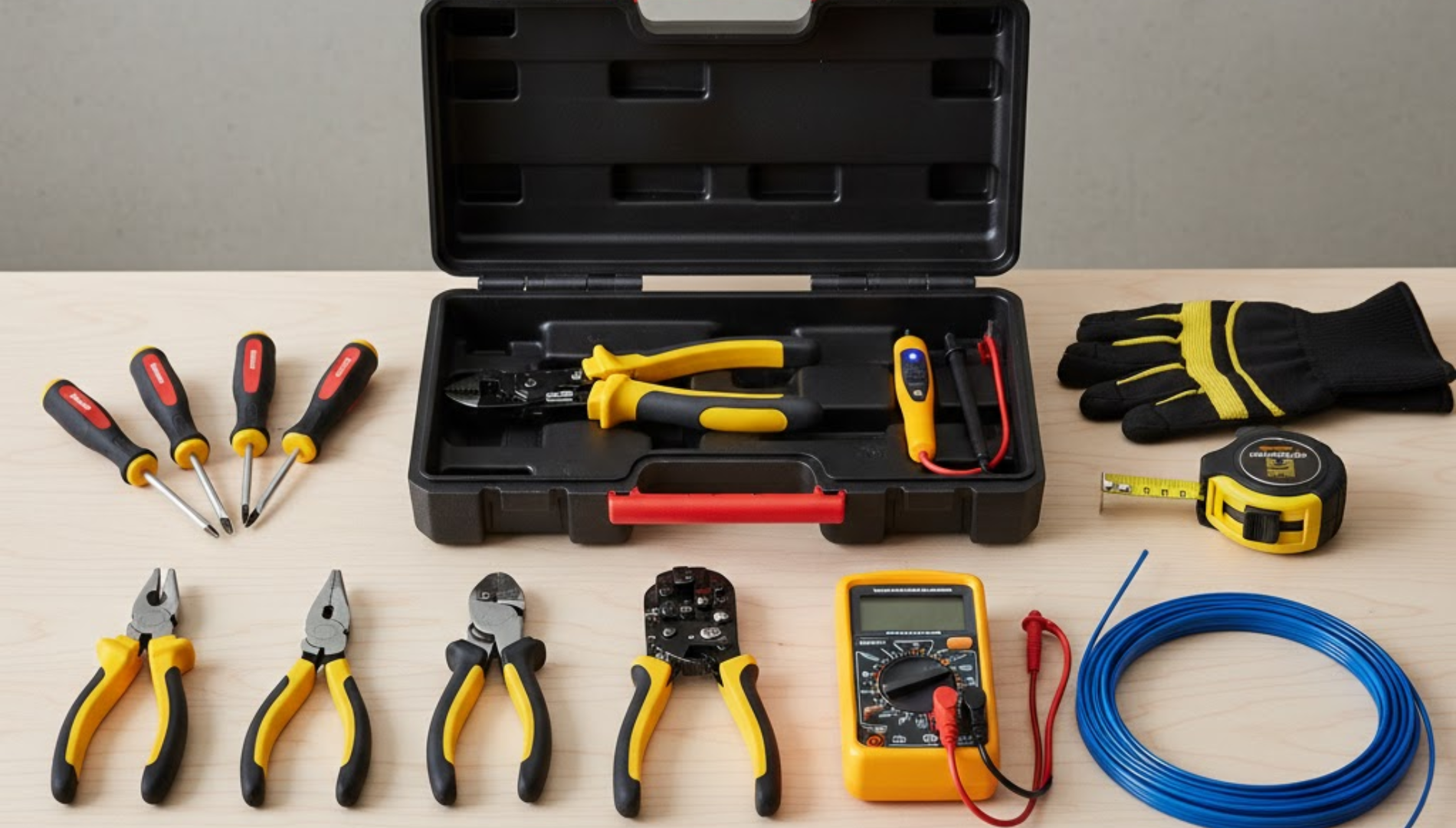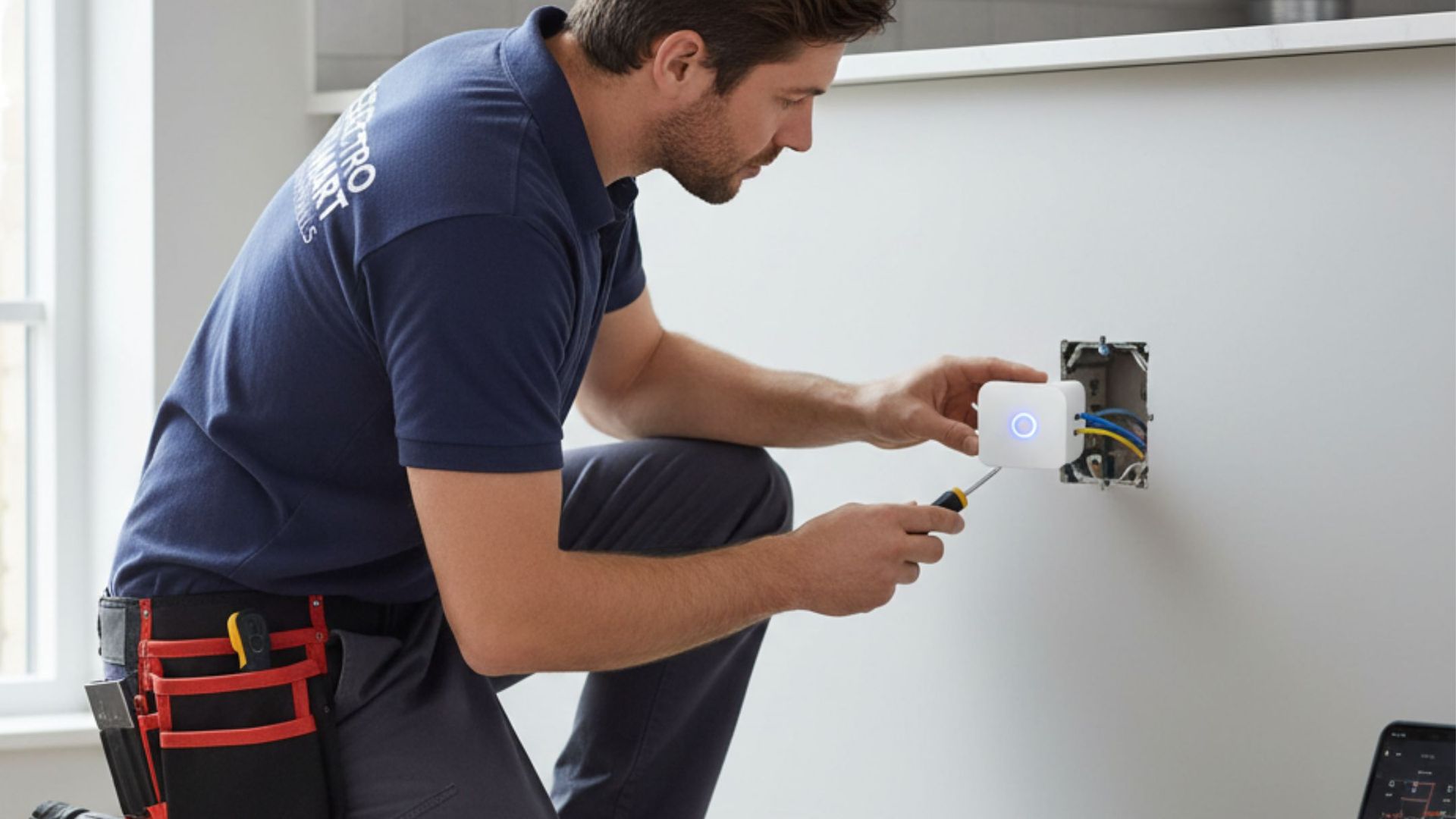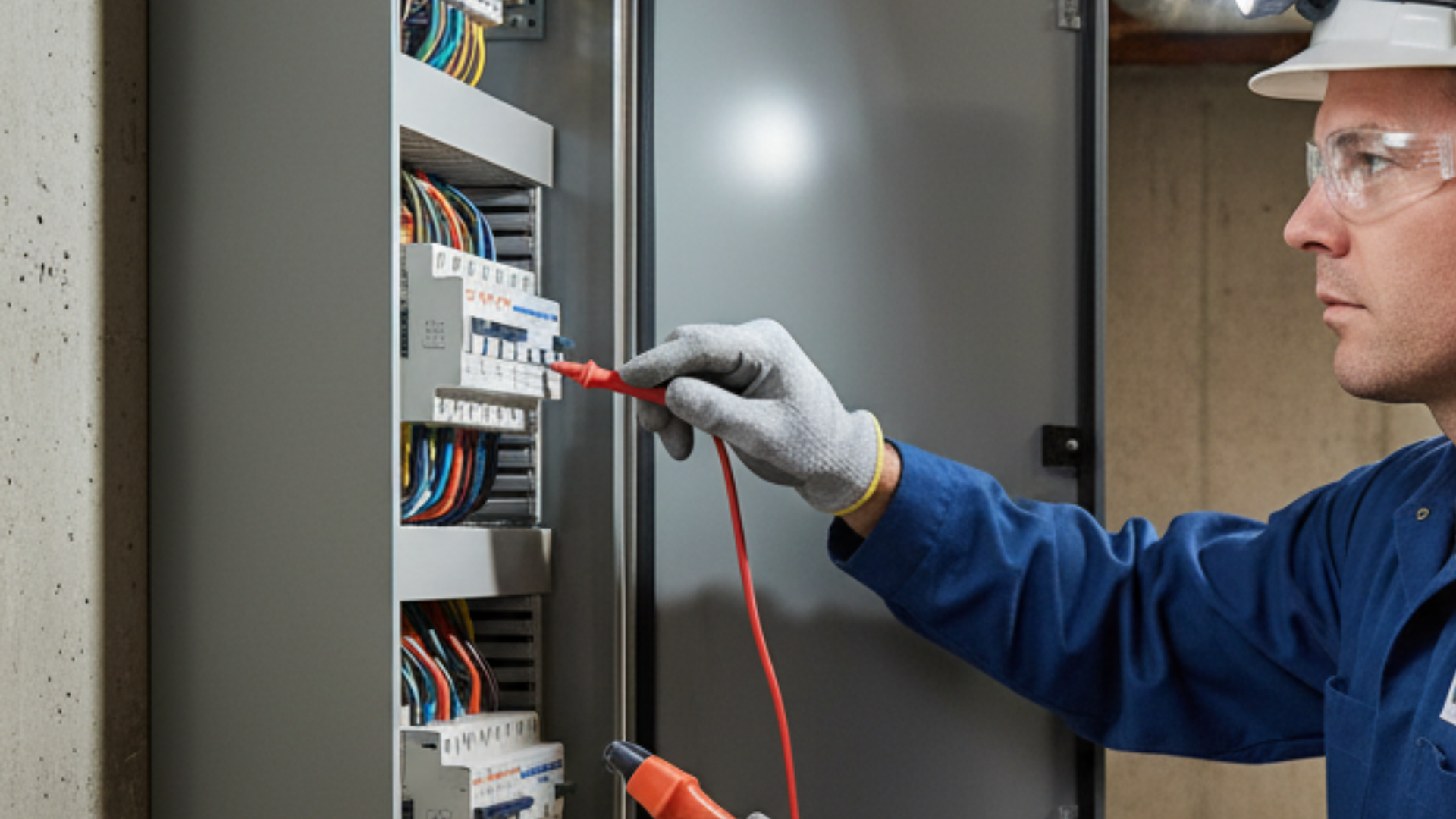What To Expect During An Electrical Installation
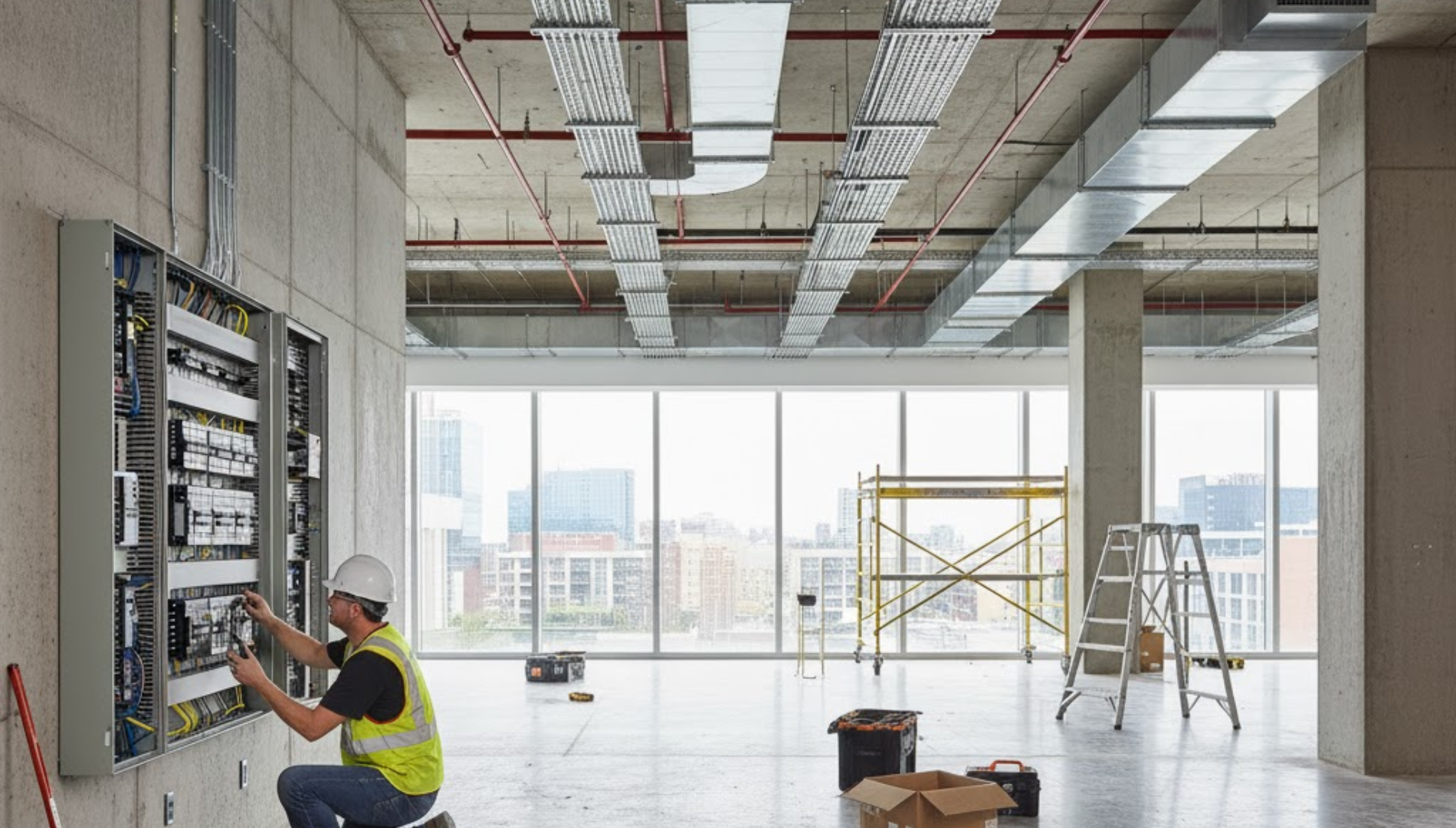
Have you ever stepped into a newly powered commercial space and wondered what it actually took to get everything running? Most people only notice the end result, the lights flick on, equipment hums to life, and the place feels ready for business. But there’s a whole process happening long before that moment, and understanding it can make your own project run a lot smoother.
The truth is, commercial electrical installation involves much more than connecting wires. There’s planning, load calculations, safety protocols, inspections, and plenty of behind-the-scenes decision-making that ensures your building gets the power it needs safely and efficiently. When you know what goes into it, you’re better prepared, more confident, and less likely to run into unexpected delays or costs.
In this guide, we’ll walk you through each stage, from the first consultation all the way to the final sign-off, so you know exactly what to expect during your commercial electrical installation and why each step matters.
Why Understanding the Installation Process Matters
Most business owners don’t think about electrical work until they have to. But having a general understanding of what electricians do helps you plan ahead and keep your project on schedule.
How knowing the steps helps you prepare
When you understand the process, you can arrange access to certain areas, coordinate with other contractors, and plan work hours around installation timelines.
Why it leads to safer, more efficient outcomes
Clear communication ensures your electrical system is installed correctly, meets code, and handles your building’s power needs without strain.
What business owners often overlook
There’s far more involved than visible wiring. Planning, load balancing, grounding, and testing all play major roles in building a safe system.
What Happens Before the Electrical Installation Begins
Before electricians begin any physical work, they take several important preparatory steps.
Initial consultation and project evaluation
This includes a walkthrough and discussion of your electrical needs, existing infrastructure, and the demands your commercial space will place on the system.
Reviewing plans, requirements, and safety needs
Electricians review blueprints, equipment layouts, and architectural plans to map out wiring routes, conduit placement, panel locations, and safety requirements.
Getting an accurate quote from licensed commercial electricians
Once everything is evaluated, your electrician provides a detailed quote that outlines cost, labor, project scope, and materials. This is the best time to compare estimates and ask questions to ensure the quote covers everything. For more insights, see
The Important of Regular Electrical Inspections.
The First Phase: Site Inspection and Planning
This phase lays the foundation for the entire installation.
Checking existing electrical infrastructure
Electricians inspect existing panels, wiring, and grounding to determine whether upgrades or replacements are needed.
Identifying load needs for commercial spaces
Commercial buildings often require higher power capacity. Electricians calculate these requirements based on machinery, HVAC systems, lighting, and overall usage.
How planning prevents delays and extra costs
Identifying potential obstacles early, such as tight spaces or outdated wiring, prevents unexpected issues later.
What Are the Steps Involved in Electrical Installation?
Electrical installation unfolds in a clear sequence.
Step 1 — Rough-in stage
Electricians install wiring, conduit, junction boxes, and panels before walls are closed.
Step 2 — Wiring, panels, and conduit work
Circuits, breakers, and grounding connections are installed and secured.
Step 3 — Final fix: switches, outlets, and fixtures
Once the building is finished, electricians install visible components like outlets, lights, and switches.
Step 4 — Testing, inspection, and certification
Before the system is approved for use, it must pass safety tests and official inspections.
The Electrical Installation Process Explained
This section digs deeper into what electricians are doing behind the scenes.
Running conduit and structural wiring
Conduit protects wiring and ensures a clean, long-lasting install.
Installing panels, circuits, and breakers
Panels are the heart of the system, and precision matters to prevent overloads or hazards.
Mounting outlets, switches, and fixtures
Visible components are installed with care to ensure usability and safety.
Ensuring compliance with NC electrical code
Everything must meet state and national electrical code to pass inspection.
What Do They Do in Electrical Installation?
Electricians handle more than wiring.
Designing electrical layouts for commercial buildings
This ensures power is distributed efficiently and safely throughout your building.
Setting up power distribution and load balancing
They divide the building into circuits and calculate how much power each area needs.
Installing lighting, outlets, safety systems, and more
From LEDs to surge protectors, electricians install all essential components.
What Tools and Equipment Electricians Use
Professionals use a mix of diagnostic, power, and safety tools.
Diagnostic tools used to verify safety
Multimeters, clamp meters, and voltage testers ensure circuits are safe.
Power tools for fast, efficient work
Drills, impact drivers, and saws help electricians install materials quickly and cleanly.
Safety gear required for all installations
Insulated gloves, fire-resistant clothing, and lockout/tagout devices protect electricians from hazards.
What Are the Stages of Electrical Installation?
Every installation follows three major phases.
Rough-in stage
The foundational wiring and conduit work.
Final installation stage
Visible components like fixtures and outlets.
Testing and sign-off stage
Safety inspections ensure code compliance and functionality.
Safety Checks and Code Compliance
This phase ensures your system meets all safety standards.
Why inspections are required
Commercial systems must meet local and national electrical codes.
What electricians look for during testing
They verify grounding, breaker function, load balance, and wiring accuracy.
Final approval and certification
After passing inspections, your system is approved for safe use.
According to OSHA, proper electrical installation and safety testing are essential to preventing hazards and ensuring long-term reliability.
What Tests Are Carried Out on a New Electrical Installation?
Every new system undergoes several tests.
Continuity testing
Ensures wiring paths are complete and secure.
Insulation resistance testing
Verifies insulation quality to prevent shorts or overheating.
Polarity and earth fault loop testing
Ensures outlets and circuits are wired correctly and grounding is effective.
Functional testing of circuits and equipment
Electricians test every switch, outlet, fixture, and breaker.
What Precautions Must Be Taken While Doing Electrical Installation?
Safety comes first.
De-energizing circuits before work
Electricians shut off power to prevent accidental shock.
Using proper PPE and insulated tools
Gloves, boots, and insulated tools protect against electrical hazards.
Following local code and OSHA safety standards
Regulations ensure long-term safety and code compliance.
Common Challenges During Commercial Electrical Installation
Every project is unique, but common challenges include:
Structural limitations
Older buildings may have tight pathways or restricted access.
Load distribution issues
Commercial spaces need careful planning to avoid overloaded circuits.
Older wiring or outdated panels
These often require replacement before new installations can begin.
What Is Included in a Commercial Electrical Installation?
A full installation includes:
Wiring and circuit design
Customized to your building’s power demands.
Energy-efficient lighting and systems
Includes LED fixtures, sensors, and emergency lighting.
Backup power or surge protection options
Generators, transfer switches, and surge protectors support essential equipment.
How Long Does a Commercial Electrical Installation Take?
Timelines vary.
Small vs. large projects
Small upgrades may take a few days. Full installations can take weeks or months.
What can speed up or slow down the process
Existing wiring, structural challenges, permits, and material availability all affect timing.
Why accurate timeframes depend on early planning
The more thorough the upfront planning, the smoother the installation.
What Should You Ask During a Commercial Electrical Installation?
Good questions help you stay informed.
Questions about safety, code, and materials
Ask what’s being installed and why.
Questions about project timeline
Know what to expect each week.
Questions about future maintenance and upgrades
Electrical systems evolve, plan for growth.
After the Installation: What Happens Next
Once the work is done:
Walkthrough and system demonstration
Your electrician explains everything installed.
Documentation and warranty information
You receive wiring diagrams, inspection reports, and equipment warranties.
Scheduling future maintenance
Regular checkups extend system life and prevent expensive problems.
Why Hiring Experienced Electricians Matters
Experience makes a real difference.
Quality work that meets long-term needs
Experienced electricians design smarter, safer systems.
Safer installations and better efficiency
They follow code precisely and use high-quality materials.
Expertise with commercial-grade systems
They know how to handle large loads, specialized equipment, and safety components.
Why Choose Nash Electric LLC for Commercial Electrical Installation
Nash Electric LLC is a trusted choice for businesses because of their:
Expertise in North Carolina codes and requirements
They ensure every component meets state and national standards.
Reliable, professional service for every project
From planning to final testing, they keep your project moving smoothly.
Transparent pricing and on-time performance
You get honest quotes, clear communication, and dependable scheduling.
Final Thoughts: Powering Your Business with Confidence
A commercial electrical installation is a major investment in your building’s safety and efficiency. When you understand the process, you can make better decisions, avoid delays, and ensure your system supports your business for years.
If you’re planning an installation or upgrade, the team at Nash Electric LLC is ready to help. Their experience, precision, and professionalism make the entire process easier from start to finish.
Ready to get started? Contact Nash Electric LLC today and get a clear, detailed quote for your commercial electrical installation.
Follow our social media pages below:

